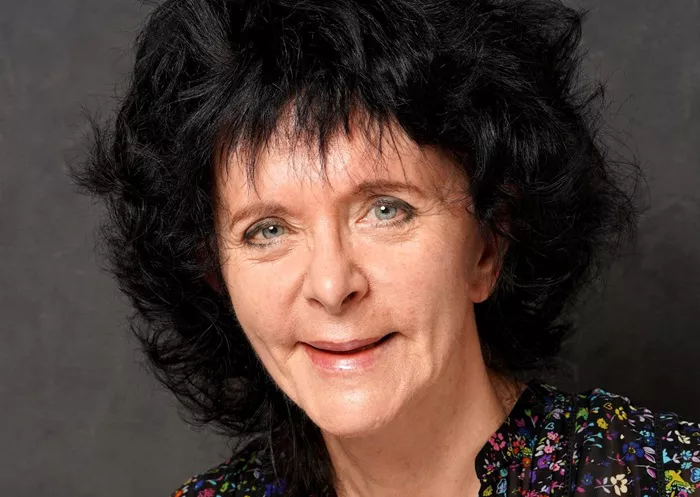Ruth Padel is a prominent figure in 20th Century British poetry and beyond. As a British poet, she has made a significant mark through her vivid and thoughtful poetry. Padel’s work often blends personal experience with wider historical and cultural themes. Her unique voice stands out in the landscape of modern British literature. This article will explore Ruth Padel’s contributions to British poetry, examine her themes and style, and compare her work with other notable poets of her time.
Ruth Padel
Ruth Padel was born in 1946, in London. Growing up in a family with a rich literary and scientific tradition, she was exposed to intellectual pursuits from a young age. This background helped shape her poetic voice. She studied at Oxford and Cambridge, focusing on classics and English literature, which influenced her strong command of language and her allusions to classical myths.
Her education gave her a foundation in both ancient and modern literary traditions. This combination is clear in her poetry, where she often revisits ancient myths with a contemporary lens. Her interest in science and nature also informs much of her work, giving it a broad and layered perspective.
Themes in Ruth Padel’s Poetry
Nature and Science
One of the dominant themes in Padel’s poetry is the relationship between humans and nature. Unlike some poets who separate the natural world from human experience, Padel integrates these seamlessly. Her poems often explore how nature reflects human emotions and experiences.
For example, in her collections such as The Soho Leopard and Darwin: A Life in Poems, she blends scientific knowledge with poetic expression. The latter work, inspired by Charles Darwin, showcases her ability to merge biography, science, and poetry. This focus on science is somewhat rare among 20th Century British poets, placing Padel in a distinctive position.
Myth and History
Padel frequently draws on myths and history. She reinterprets classical myths from a modern feminist perspective. This aligns her with other British poets like Carol Ann Duffy, who also revisits myths but with a sharper political edge.
Her use of myth is not just decorative. It is a tool to explore contemporary issues such as gender, identity, and power. By invoking ancient stories, she highlights their ongoing relevance. This approach connects her to the tradition of British poetry that sees myths as living narratives.
Personal and Political
While many of Padel’s poems are rooted in the personal, they often extend to political concerns. She addresses themes such as loss, exile, and displacement, which resonate on both individual and societal levels. Her poetry sometimes reflects on the experience of women in society and the arts, making her a significant voice in feminist British poetry.
Style and Form
Ruth Padel’s poetry is notable for its clarity and accessibility. She often writes in free verse but also employs traditional forms when appropriate. This flexibility demonstrates her deep understanding of poetic tradition and her skill in adapting form to content.
Her language is precise and musical. She uses metaphor and imagery effectively, but never lets them obscure meaning. This directness has earned her wide readership and critical acclaim. In the 20th Century British poetry scene, where some poets favored obscurity, Padel’s clarity stands out.
Comparison with Contemporary British Poets
Carol Ann Duffy
Carol Ann Duffy, a contemporary British poet, shares some thematic interests with Ruth Padel, particularly in their use of myth and feminism. However, Duffy’s poetry tends to be more overtly political and often uses sharp, dramatic voices. Padel’s style is more reflective and lyrical, focusing on the blending of science, nature, and myth.
Seamus Heaney
Though Irish rather than British, Seamus Heaney was a major figure in late 20th-century poetry. Both Heaney and Padel engage deeply with nature and history. Heaney’s poetry often reflects on rural life and Irish identity, while Padel’s work is more urban and scientific. Their shared interest in myth and tradition places them within a common poetic lineage, even as their focuses differ.
Ted Hughes
Ted Hughes, a towering figure in British poetry, is known for his intense exploration of nature and mythology. Padel’s work shares this engagement but often with a more personal and feminist viewpoint. Hughes’s poetry can be raw and violent, while Padel’s tone tends toward reflection and inquiry.
Contributions and Recognition
Ruth Padel has received several prestigious awards and fellowships. Her influence extends beyond poetry into teaching and broadcasting. She has been a professor and has contributed to public understanding of poetry through radio programs and lectures. This role as both creator and educator strengthens her position in British poetry.
Her commitment to making poetry accessible while maintaining depth has helped broaden the audience for contemporary poetry. Shealso serves as an important advocate for women poets in Britain, promoting gender equality in literary circles.
Impact on British Poetry
Padel’s integration of science, history, and myth challenges the boundaries of traditional poetry. She has expanded the themes that British poets engage with and inspired others to explore interdisciplinary approaches. Her work encourages readers to see poetry as a living dialogue between past and present, nature and culture.
Her emphasis on clarity and emotional honesty has influenced younger poets. In a time when poetry can sometimes feel remote, Padel’s work invites readers into a shared experience of discovery and reflection.
Conclusion
Ruth Padel is a significant 20th Century British poet whose work enriches the tradition of British poetry through its unique blending of science, myth, and personal insight. By comparing her with other poets of her era, we see how her voice is distinct yet connected to broader trends. Her poetry challenges, educates, and inspires, making her an essential figure in modern British literature.
As we continue to explore the diverse voices of 20th Century British poetry, Ruth Padel’s contributions remind us of poetry’s power to bridge disciplines, illuminate history, and deepen our understanding of the human condition.

